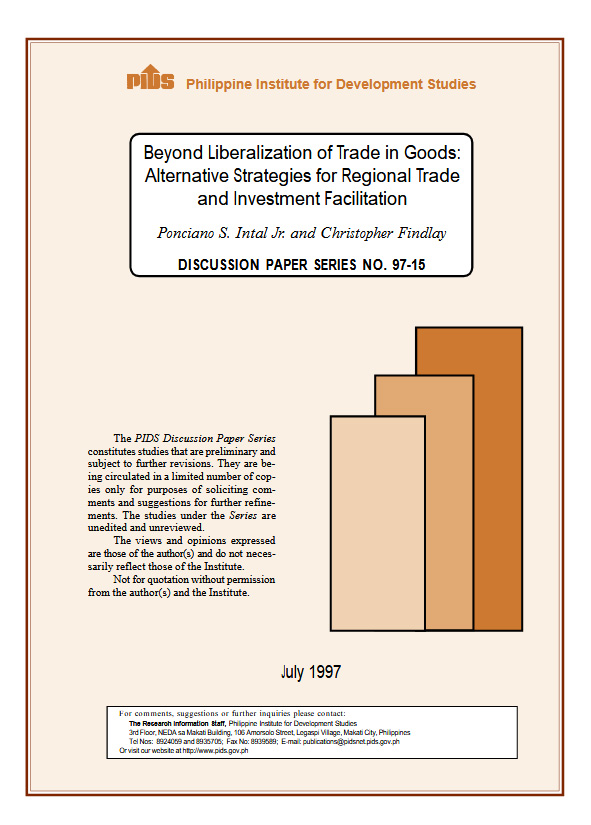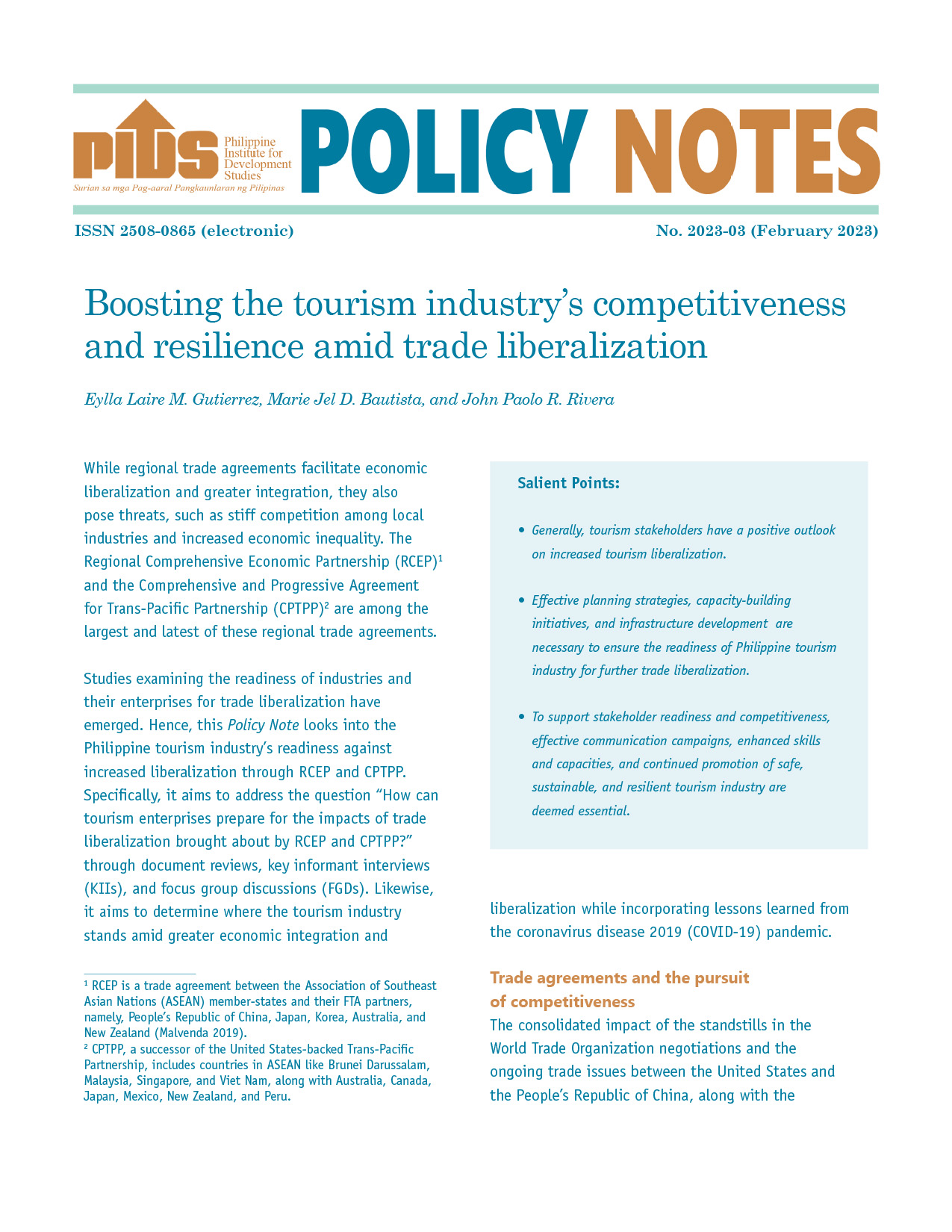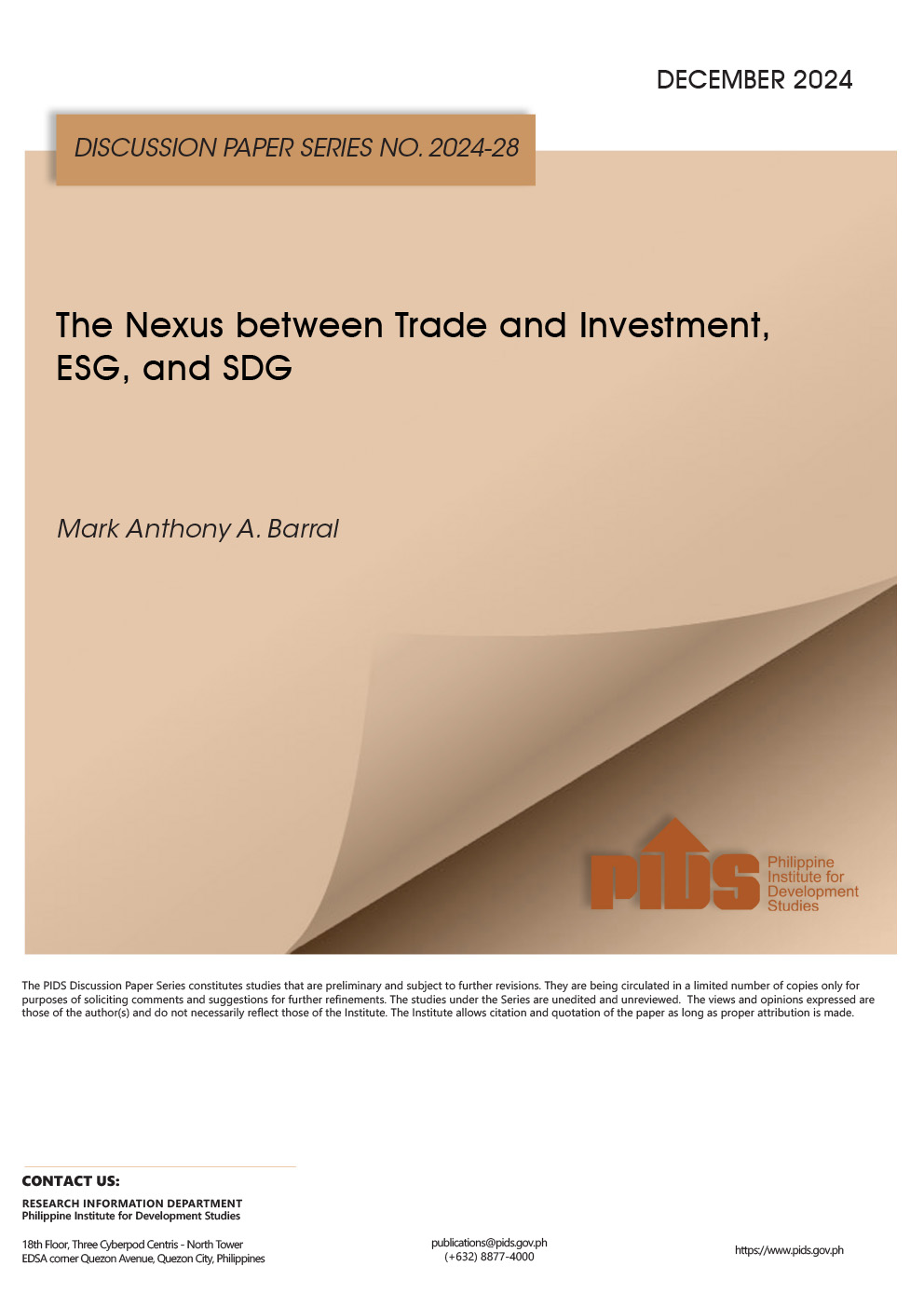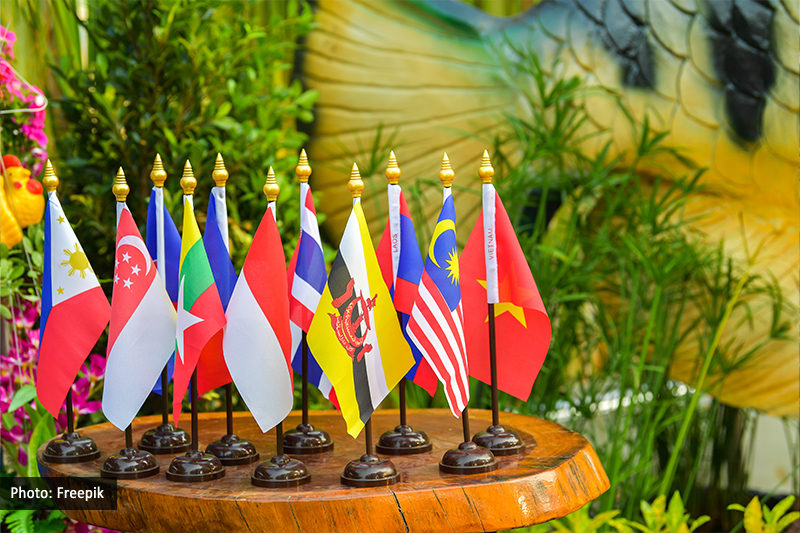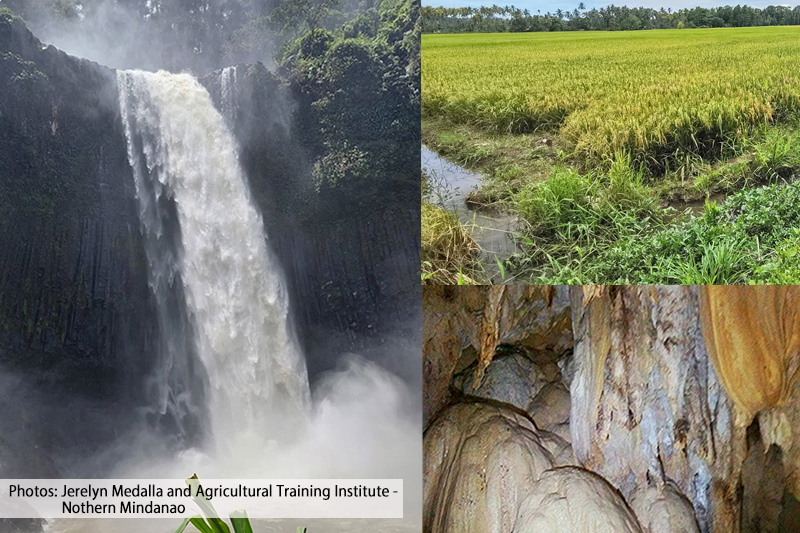Reduction in tariff rates has been one of the major developments in international trade. With the forged commitments in Uruguay Round and unilateral trade liberalization/tariff reduction programs under regional trading arrangements, further tariff reduction is expected. Despite the reforms and progresses in trade liberalization undertaken by member countries, much still remain to be addressed. Hence, the Bogor goal of free and open trade and investment lead to APEC member countries to bring trade liberalization to the fore. While APEC has continuously stressed voluntary liberalization efforts, it is expected that countries will undertake these, given positive results on cost and benefit analysis. Hence, trade and investment facilitation measures are called for. This paper argues the need to concentrate in strengthening such measures as complementary to the trade liberalization agenda. This also enumerates the key elements in shaping the framework for trade and investment facilitation measures and illustrates the application of these concepts to investment liberalization and facilitation, to reform of customs systems, to changing rules of origin and to standard setting.

